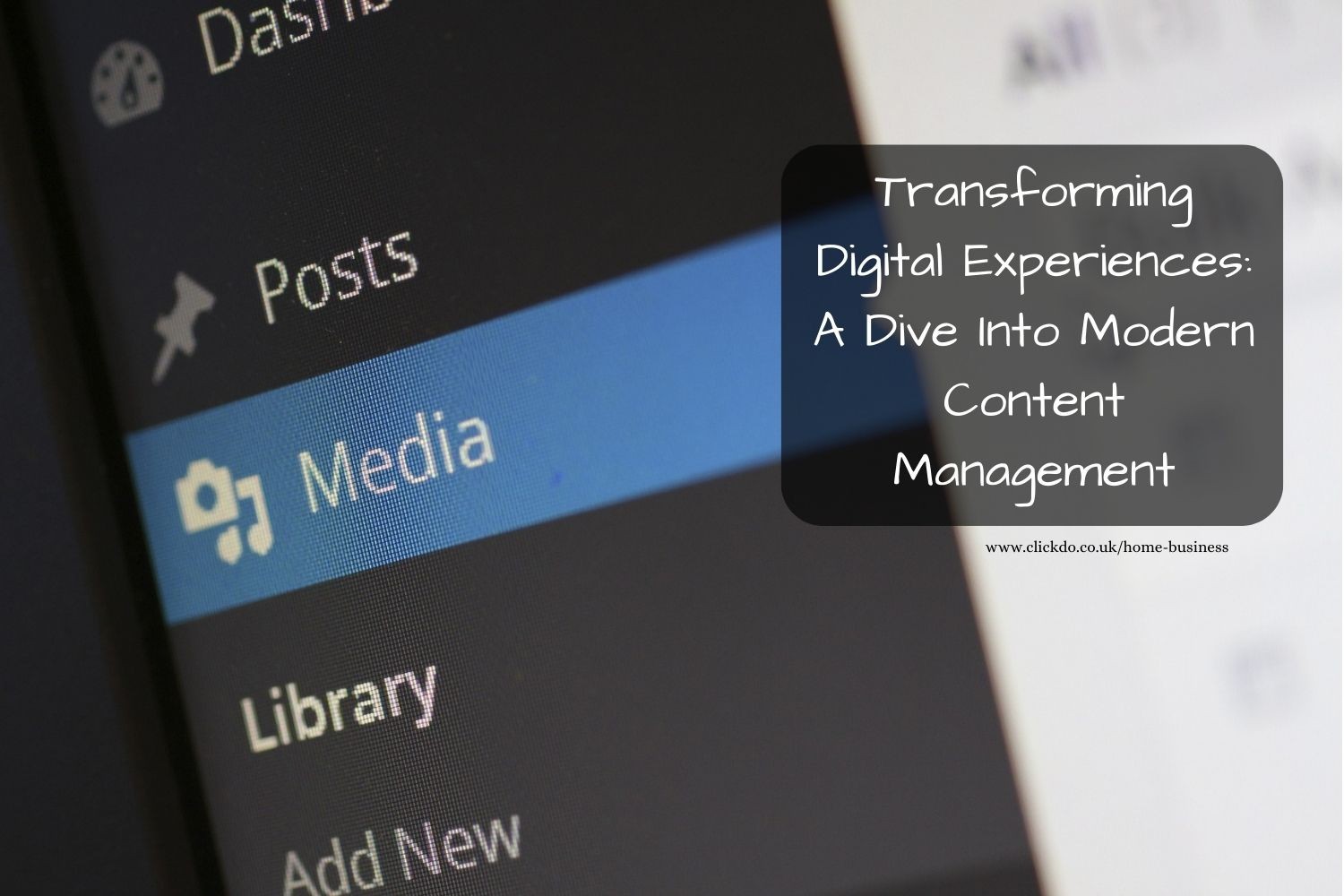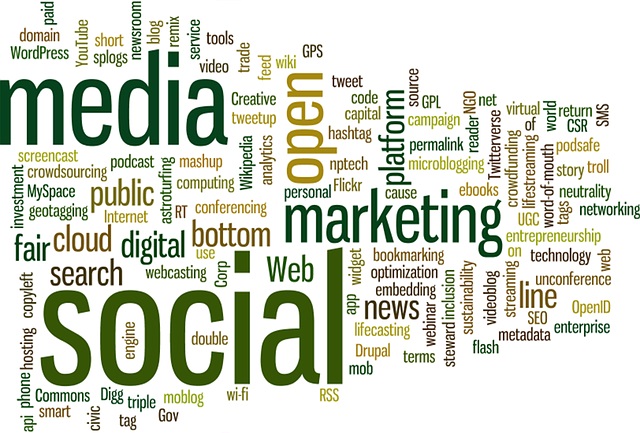
Transforming Digital Experiences: A Dive Into Modern Content Management
We’re living in a world inextricably tethered to digital landscapes. As consumers increasingly rely on digital mediums for entertainment, shopping, information, and connectivity, businesses must adapt and innovate.
This shift has propelled the significance of content management systems (CMS) to the forefront. A CMS allows companies to create, manage, and modify content on a website without specialized technical knowledge.
But as the digital realm continues to evolve, so must our approach to content management. The digital economy requires constant innovation, compelling companies to reevaluate their strategies and embrace technology that empowers them.
Businesses must seek solutions that allow flexibility and agility in content delivery, fostering an engaging and dynamic user experience. CMS, therefore, is not a static tool but a constantly evolving system that reflects the dynamic nature of the digital world.
The necessity to stay relevant in this fast-paced environment pushes businesses to look beyond traditional content management systems and seek more adaptable and responsive solutions.
Table of Contents
The Advent Of Headless CMS

Historically, traditional or coupled CMS dominated the market. However, this technology’s restrictions have become apparent as more businesses migrate to an online platform. Coupled CMS can hinder flexibility, innovation, and speed core tenets of today’s fast-paced digital economy. Enter the headless CMS—a modern, agile solution.
By separating the backend content from the frontend presentation layer, a headless CMS gives organizations unparalleled flexibility to deliver seamless content across multiple channels, devices, and platforms. This new architecture has significant advantages over its predecessor. One such advantage is its ability to cater to a variety of customer touchpoints, be it mobile applications, websites, or digital kiosks, thereby supporting omnichannel marketing efforts.
Furthermore, the headless CMS architecture is not constrained by specific languages or frameworks, enabling developers to leverage the best technology for their unique requirements. It also accelerates the time to market, as developers can work simultaneously on different aspects of the CMS without causing disruptions. Thus, headless CMS provides a scalable, robust, and future-proof solution that enables businesses to grow and innovate.
The Power Of Content Personalization

Today’s consumers expect personalized experiences tailored to their interests, behaviours, and needs. Leveraging data and technology, modern CMS allows businesses to meet these expectations by delivering bespoke content, thus elevating the customer experience. For instance, a potential customer might be researching how to compress a PDF on their mobile device. Your CMS could detect their activity, learn their preferences, and subsequently serve up related content—such as a blog post detailing the steps to compress PDF files or recommending software for the task, such as Smallpdf.
This level of personalization enhances user engagement, fosters brand loyalty, and boosts conversion rates. Beyond the immediate benefits, such personalization allows businesses to build detailed customer profiles over time, improving the accuracy and effectiveness of their marketing efforts. It also opens the door for real-time personalization, where content is adapted in response to immediate user behaviour.
Moreover, data gathered from these personalized interactions provide valuable insights that can be used to improve business strategies and decision-making. Thus, content personalization has become an integral part of modern content management, transforming how businesses interact with and understand their customers.
Optimizing Content Delivery

With the rise of Internet of Things (IoT) devices and the increasing number of digital platforms, your content must be optimized for delivery across a myriad of channels. The right CMS should facilitate smooth, responsive, and consistent content delivery, whether on a mobile app, smartwatch, or virtual reality headset.
Crucial to this is your CMS’s ability to manage structured content—content broken down into a standardized format for easy consumption by various devices. Structured content, coupled with the flexibility of a headless CMS, ensures your brand message is disseminated effectively, regardless of the platform. This capability allows businesses to offer a consistent brand experience across all platforms, increasing the chances of customer engagement and conversion.
Moreover, it allows organizations to venture into new digital avenues and consumer touchpoints without reinventing their content strategy. By optimizing content delivery, businesses can ensure their messaging remains clear, engaging, and relevant, irrespective of how or where it is consumed. This flexibility will only become more valuable as new platforms and technologies continue to emerge.
Scaling With Cloud-Based CMS

In the face of growing digital demands, scalability has become a non-negotiable feature of any CMS. Cloud-based CMS solutions offer unparalleled scalability, allowing businesses to expand and contract their digital operations based on demand. Additionally, cloud-based CMS fosters collaboration among team members, as content can be accessed and edited from anywhere, anytime. This agility enables businesses to be more responsive to market changes, meet consumer needs swiftly, and stay ahead of competitors.
Moreover, the inherent scalability of a cloud-based CMS supports business growth, as the system can readily adapt to increasing content volumes and user traffic. The cloud also offers superior reliability and uptime compared to on-premises solutions, ensuring your content is always available to your audience. Furthermore, the reduced IT overhead, given the absence of physical servers and associated maintenance, allows resources to be redirected towards more strategic initiatives.
Security: A Paramount Concern
As businesses increase their digital footprint, security becomes a paramount concern. A robust CMS should have stringent security protocols in place to protect sensitive customer data and the business’s digital assets. Data encryption, strong user authentication, regular updates, and compliance with data privacy laws are some of the security features your CMS should boast. Implementing a secure CMS not only protects your brand reputation but also builds trust with your customers—which is essential for a successful digital presence.
With the increasing prevalence of cyber threats, businesses must ensure that their chosen CMS is equipped with state-of-the-art security features. It’s crucial to understand that security is not a one-time setup but an ongoing process. Regular audits, updates, and staff training are key to maintaining a secure CMS and protecting against emerging threats. Moreover, adherence to data privacy laws is not just a legal requirement but also a trust-building measure with your audience, further underlining the significance of security in content management.
The Future Is Omnichannel
In a world where consumers switch between devices and platforms seamlessly, businesses must embrace an omnichannel approach. A modern CMS facilitates this by enabling content to be delivered across multiple touchpoints, creating a unified brand experience. This future-forward approach allows businesses to meet consumers where they are, provide personalized experiences, and ultimately remain competitive in the evolving digital landscape.
As technology continues to progress, those that harness the power of modern CMS will undoubtedly lead the digital transformation charge. An omnichannel approach necessitates creating and managing consistent, high-quality content that can be adapted to various platforms without diluting the brand message. To achieve this, businesses require a CMS that supports the creation of structured content, allows flexibility in content delivery, and offers tools for content personalization. The adoption of such an approach is not just about staying current, but rather, it is a strategic move aimed at improving customer satisfaction, fostering customer loyalty, and driving business growth.
Future-Proofing Business With Modern CMS
The digital revolution necessitates a dynamic approach to content management. Businesses must embrace systems like the headless CMS that enable seamless, multi-platform content delivery, ensuring an engaging omnichannel experience. With technology propelling personalization to the forefront, modern CMS systems must leverage data to provide tailored experiences that cultivate customer loyalty.
In this era of escalating cyber threats, robust security measures within the CMS are essential to safeguard sensitive data and maintain consumer trust. Scalability, facilitated by cloud-based solutions, allows for flexibility and responsiveness to market shifts, ensuring businesses stay competitive. As the digital landscape continues to evolve, those leveraging the power of modern CMS will lead the charge, shaping the future with agility, personalization, and innovation.
Author Profile
- Online Media & PR Strategist
- Blogger and Educator by Passion | Contributor to many Business Blogs in the United Kingdom | Fascinated to Write Blogs in News & Education I have completed a journalism summer course at the London School of Journalism and am an eBook author.
Latest entries
 EmploymentFebruary 6, 2025How Do Accurate Testing Solutions Help Create Safer Work Environments in the UK: An Expert Analysis
EmploymentFebruary 6, 2025How Do Accurate Testing Solutions Help Create Safer Work Environments in the UK: An Expert Analysis Online BrandingNovember 27, 2024Global vs. Local Websites: Which is Best for Business?
Online BrandingNovember 27, 2024Global vs. Local Websites: Which is Best for Business? TechnologyNovember 6, 20247 Mobile Usability Tips for Online Platforms to Boost Brand Trust
TechnologyNovember 6, 20247 Mobile Usability Tips for Online Platforms to Boost Brand Trust Home BusinessSeptember 25, 2024Top 8 Home Office Essentials for a Seamless Work from Home Experience
Home BusinessSeptember 25, 2024Top 8 Home Office Essentials for a Seamless Work from Home Experience

